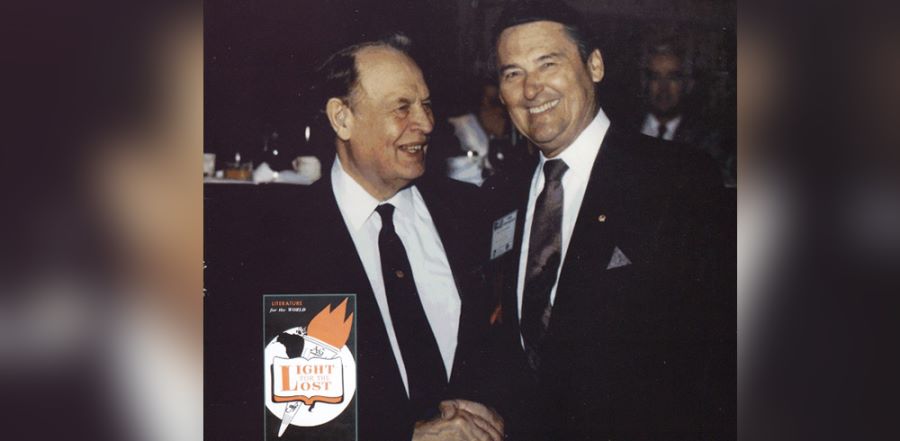Light for the Lost: Since 1953, Assemblies of God Laymen Have Raised Almost $350 Million for Missions
This Week in AG History — December 2, 1962 By Darrin J. RodgersOriginally published on AG-News, 01 December 2022 When Assemblies of layman Sam Cochran started Light for the Lost in 1953, he could not have imagined that the ministry … Continue reading

This Week in AG History — December 2, 1962
By Darrin J. Rodgers
Originally published on AG-News, 01 December 2022
When Assemblies of layman Sam Cochran started Light for the Lost in 1953, he could not have imagined that the ministry would raise, during the next 69 years, almost $350 million for the printing and distribution of gospel literature and other evangelism resources.
Cochran, a successful insurance broker in California, saw a vision during a time of extended prayer in 1952. This vision transformed Cochran’s life and his approach to missions. In his vision, Cochran saw throngs of people from all over the world, reaching upward in an attempt to grab hold of a large Bible in a hand reaching from heaven. He heard one person plead, “Give me the Book! Give me the Book!” Before they could take hold of the Bible, a door seemingly swung open beneath the people, and they all fell into a fiery inferno.
Cochran, shaken by this vision, felt compelled to find a way to provide gospel literature to people around the world. But what could he, as a layman, do? Most Assemblies of God ministries were conceived and led by ministers and missionaries. Cochran could certainly give money, but he wanted to do more. He felt led by the Holy Spirit to form an organization of laymen who would raise money for the purpose of providing gospel literature. In 1953, Cochran and several others who caught the vision formed the Missionary Gospel Society. The Southern California District of the Assemblies of God recognized the new organization. Cochran and his friends began raising money for missions across California.
The organization grew and, in 1959, was incorporated into the national structure of the Assemblies of God. It became known as Light for the Lost and became a program of the Men’s Fellowship Department (now Men’s Ministries). The story behind the founding of Light for the Lost was published 60 years ago in the Dec. 2, 1962, issue of the Pentecostal Evangel.
Light for the Lost continues to fulfill a vital need as it provides evangelism resources around the world, in conjunction with the efforts of Assemblies of God missionaries. Rick Allen, current national director of Light for the Lost, works alongside a team of directors from 66 Assemblies of God districts and networks. This grassroots ministry of laymen has played an important role in helping the Assemblies of God to fulfill the Great Commission.
Read the article, “It Began with a Burden: The Story of Light for the Lost,” by Everett James, published on pages 10 and 11 of the Dec. 2, 1962, issue of the Pentecostal Evangel.
A history of Light for the Lost, written by Mel Surface, was published in the Spring 2003 issue of Assemblies of God Heritage.
Also featured in this issue:
• “The Holy Spirit and Everyday Life,” by C.M. Ward
• “Winning Men at Work,” by Jim Monson
And many more!
Click here to read this issue now.
Photo: Assemblies of God General Superintendent G. Raymond Carlson (left) congratulates Sam Cochran on his retirement as executive vice president of Light for the Lost in 1989.
Pentecostal Evangel archived editions courtesy of the Flower Pentecostal Heritage Center.
Do you have Pentecostal historical materials that should be preserved? Please consider depositing these materials at the Flower Pentecostal Heritage Center (FPHC). The FPHC, located in the Assemblies of God national offices, is the largest Pentecostal archive in the world. We would like to preserve and make your treasures accessible to those who write the history books.
Flower Pentecostal Heritage Center
1445 North Boonville Avenue
Springfield, Missouri 65802 USA
Phone: 417.862.1447 ext. 4400
Toll Free: 877.840.5200
Email: archives@ag.org
Website: www.iFPHC.org



